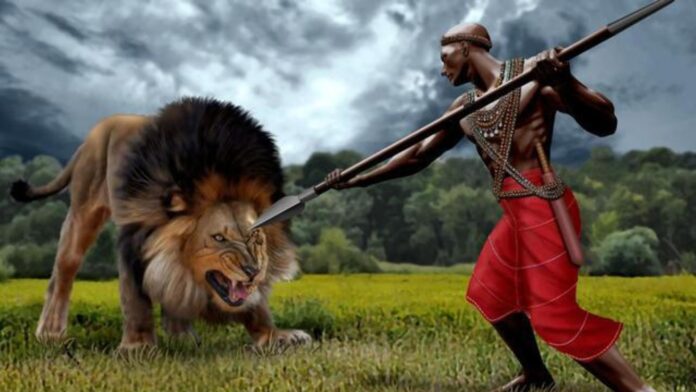The Maasai community, found mainly in southern Kenya and northern Tanzania, is one of Africa’s most well-known pastoralist societies. They have long been admired for their vibrant culture, distinctive dress, and strong warrior traditions. One of the most iconic—and often misunderstood—rituals in their history is the lion hunt ceremony, also known as olamayio.
What Was the Lion Hunt Ceremony?
Traditionally, the lion hunt was a rite of passage for Maasai warriors, called ilmurran (singular: moran). It was not simply about hunting for food or sport.
The hunt was deeply symbolic, tied to the ideals of bravery, responsibility, and masculinity. Young men, usually in their late teens or early twenties, participated in the hunt as part of their transition into adulthood.
Here are some of the key reasons the ceremony was important:
- Initiation and Identity: The hunt marked the shift from youth to warriorhood. A successful hunt elevated a young man’s status within his age-set and community.
- Group Solidarity: Most hunts were carried out in groups. This fostered teamwork, strategy, and loyalty among warriors of the same age group.
- Honor and Legacy: Killing a lion was seen as the ultimate act of courage. The warrior would be celebrated, sometimes receiving a special lion name and wearing the lion’s mane or claws as part of his attire.
It’s worth noting that traditionally, Maasai avoided hunting female lions unless absolutely necessary. The focus was on male lions, especially those that had become threats to livestock.
Cultural Beliefs Behind the Ceremony
The lion, or olng’ata, held a complex place in Maasai cosmology. It was feared and respected. While the community raised cattle—their main source of wealth and livelihood—lions were natural predators. The lion hunt was thus also a symbolic act of protecting the community’s wealth and asserting human authority over nature.
Importantly, the ceremony was not conducted casually. Elders had to give permission, and certain rituals had to be followed before and after the hunt. For example, warriors would undergo spiritual preparations, and the kill was accompanied by songs, dances, and blessings.
Why Did the Ceremony Stop?
By the late 20th and early 21st centuries, several factors led to the decline of traditional lion hunting:
- Conservation Concerns: Lions are now considered a vulnerable species, with populations declining due to habitat loss, poaching, and human-wildlife conflict. Conservation organizations and governments began enforcing laws against lion killing to protect the species.
- Education and Modernization: As access to education and formal employment grew, many Maasai youth began seeking other paths to adulthood. Urbanization and interaction with broader society also influenced cultural change.
- Community Leadership: Many Maasai elders and cultural leaders voluntarily chose to phase out lion hunts, recognizing the importance of preserving both cultural values and wildlife.
What Has Replaced the Hunt?
In place of the traditional lion hunt, several cultural and educational programs have emerged:
- Warrior Training and Competitions: These retain the physical and mental challenges of warriorhood—running, jumping, wrestling—but without killing lions.
- Conservation Initiatives: Programs like Lion Guardians and Big Life Foundation have partnered with Maasai communities to train former lion hunters as wildlife trackers, protectors, and conservation educators.
- Cultural Tourism: Some Maasai groups now share their history and ceremonies with visitors through cultural centers and guided experiences. This allows them to preserve tradition while earning an income.
A Tradition in Transition
The lion hunt ceremony is a powerful example of how African cultures can evolve while holding onto their core values. For the Maasai, the traits celebrated through the lion hunt—courage, discipline, loyalty—are still relevant today, even if the method of expressing them has changed.
Understanding this tradition means going beyond the surface. It’s not just about hunting lions—it’s about what the hunt meant to a community, and how those meanings are being preserved in a changing world.

